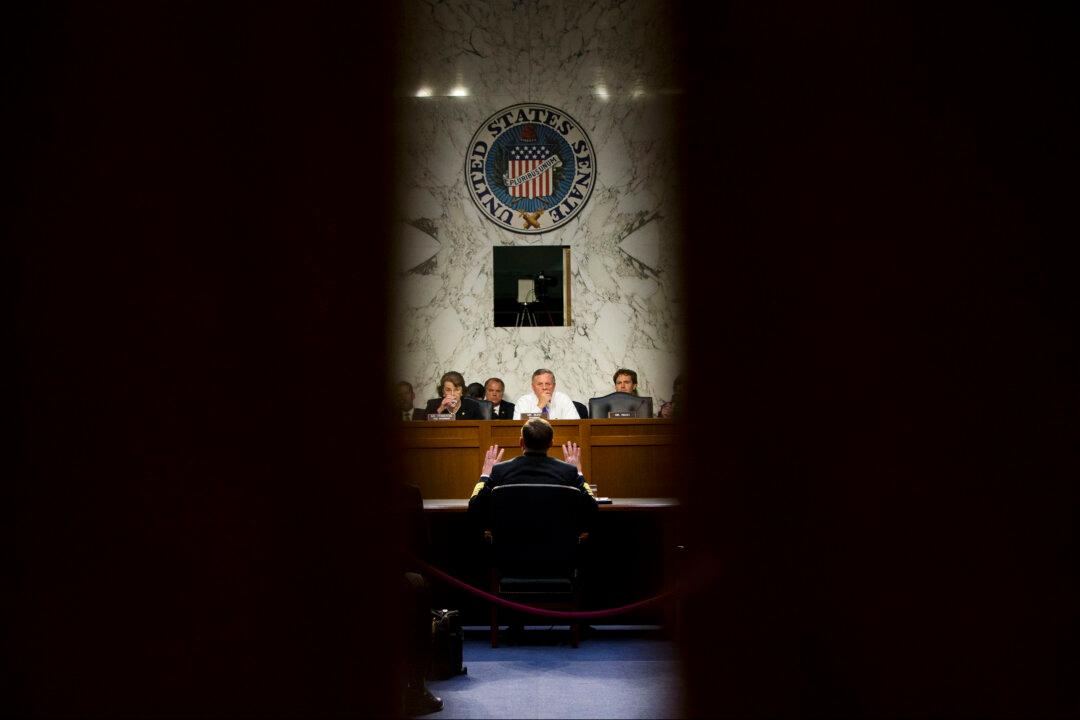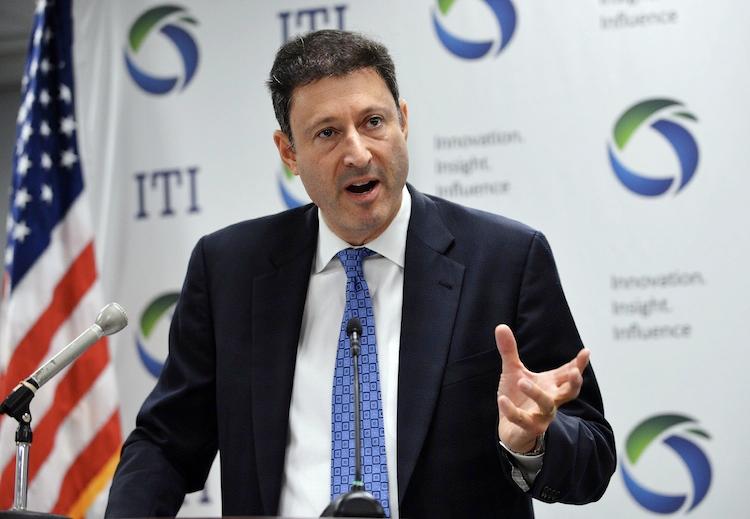Focus
online privacy
LATEST
China’s Internet Is Being Erased as CCP Tests System to Monitor All Online Activity
A new surveillance system now being tested in China would eliminate online privacy and allow the regime to monitor all online activity.
|
‘Privacy and Security’ Should Be the Core of National Digital ID: Australia’s Largest Bank
The Commonwealth Bank supports the digital ID rollout but has maintained that it must remain voluntary and be secure.
|
What Is Ransomware and How to Protect Your Precious Files From It
What would it mean if you lost all of your personal documents, such as your family photos, research or business records?
|
Your Broadband Router Is Not as Secure as You Think It Is
This humble device is often overlooked, yet it is also your first line of defence against hackers, malware and viruses.
|
How Tor’s Privacy Was (Momentarily) Broken, and the Questions It Raises
Just how secure is Tor, one of the most widely used internet privacy tools?
|
Cybersecurity Bill Would Add Secrecy to Public Records Laws
A proposed law meant to encourage companies to share information about cyberthreats with the U.S. government includes measures that could significantly limit what details, if any, the public can review about the program through federal and state public records laws.
|
Here We Go Again: Paris Attacks May Renew Encryption Debate
The deadly attacks in Paris may soon reopen the debate over whether—and how—tech companies should let the government sidestep the data scrambling that shields everyday commerce and daily digital life alike.
|
Proposed US and UK Laws Will Entrench Surveillance Powers Across the Atlantic
The legislation brought forward by UK and US governments pursues an aggressive path toward entrenching surveillance powers at the cost of citizens’ privacy.
|
What the Investigatory Powers Bill Will Mean for You and Your Internet Use
Through pressure from Google, Facebook, and other major providers such as Yahoo and Apple the world wide web is slowly becoming more secure.
|
Web Users Are Caught in a Tug-of-War Between Advertisers and Ad-blockers
The battle between the advertising industry, mobile phone operators, publishers and privacy advocates has reached new heights, with Apple’s decision to allow ad-blocking extensions in its Safari browser sparking fears that the multi-billion dollar mobile ad industry could be about to take an expensive haircut.
|
The Web Has Become a Hall of Mirrors, Filled Only With Reflections of Our Data
The “digital assistant” is proliferating, able to combine intelligent natural language processing, voice-operated control over a smartphone’s functions and access to web services.
|
2012 & Beyond: Debate Over Online Privacy Legislation Continues
Two major pieces of legislation regarding online piracy and cybersecurity were rejected in 2012, and dynamic discussions on Internet privacy are expected to continue throughout 2013.
|
Facing Espionage, US Rejects Changes to Global Telecom
The U.N. has been pressuring the United States to hand over control of global telecommunications, but Washington is putting the brakes on that plan over concerns that member states including China and Russia, will gain too much control over cybersecurity.
|
FTC Report Calls for Stronger Online Privacy
Companies collect and share information about their customers in many ways, some of which are invisible to the customers.
|
China’s Internet Is Being Erased as CCP Tests System to Monitor All Online Activity
A new surveillance system now being tested in China would eliminate online privacy and allow the regime to monitor all online activity.
|
‘Privacy and Security’ Should Be the Core of National Digital ID: Australia’s Largest Bank
The Commonwealth Bank supports the digital ID rollout but has maintained that it must remain voluntary and be secure.
|
What Is Ransomware and How to Protect Your Precious Files From It
What would it mean if you lost all of your personal documents, such as your family photos, research or business records?
|
Your Broadband Router Is Not as Secure as You Think It Is
This humble device is often overlooked, yet it is also your first line of defence against hackers, malware and viruses.
|
How Tor’s Privacy Was (Momentarily) Broken, and the Questions It Raises
Just how secure is Tor, one of the most widely used internet privacy tools?
|
Cybersecurity Bill Would Add Secrecy to Public Records Laws
A proposed law meant to encourage companies to share information about cyberthreats with the U.S. government includes measures that could significantly limit what details, if any, the public can review about the program through federal and state public records laws.
|
Here We Go Again: Paris Attacks May Renew Encryption Debate
The deadly attacks in Paris may soon reopen the debate over whether—and how—tech companies should let the government sidestep the data scrambling that shields everyday commerce and daily digital life alike.
|
Proposed US and UK Laws Will Entrench Surveillance Powers Across the Atlantic
The legislation brought forward by UK and US governments pursues an aggressive path toward entrenching surveillance powers at the cost of citizens’ privacy.
|
What the Investigatory Powers Bill Will Mean for You and Your Internet Use
Through pressure from Google, Facebook, and other major providers such as Yahoo and Apple the world wide web is slowly becoming more secure.
|
Web Users Are Caught in a Tug-of-War Between Advertisers and Ad-blockers
The battle between the advertising industry, mobile phone operators, publishers and privacy advocates has reached new heights, with Apple’s decision to allow ad-blocking extensions in its Safari browser sparking fears that the multi-billion dollar mobile ad industry could be about to take an expensive haircut.
|
The Web Has Become a Hall of Mirrors, Filled Only With Reflections of Our Data
The “digital assistant” is proliferating, able to combine intelligent natural language processing, voice-operated control over a smartphone’s functions and access to web services.
|
2012 & Beyond: Debate Over Online Privacy Legislation Continues
Two major pieces of legislation regarding online piracy and cybersecurity were rejected in 2012, and dynamic discussions on Internet privacy are expected to continue throughout 2013.
|
Facing Espionage, US Rejects Changes to Global Telecom
The U.N. has been pressuring the United States to hand over control of global telecommunications, but Washington is putting the brakes on that plan over concerns that member states including China and Russia, will gain too much control over cybersecurity.
|
FTC Report Calls for Stronger Online Privacy
Companies collect and share information about their customers in many ways, some of which are invisible to the customers.
|


















